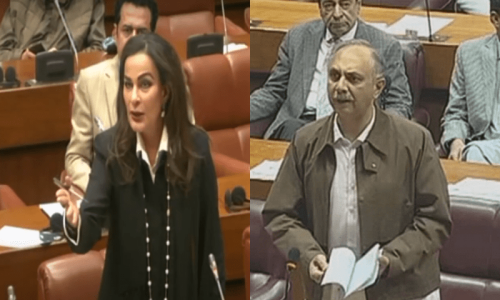LAHORE, April 18: Flour supply remains under pressure in the province, except for a very small pocket in the southern part, because of delay in wheat harvest and government failure to remove policy hiccups.
According to farmers and traders, the wet weather has not only delayed the harvest for a few days but also increased moisture in wheat crop. Both these factors have stemmed the flow of wheat to the market. In addition to weather problems, the government failure to issue permits to millers and private buyers has also not helped the market.
"The government has still not issued permits to the millers. It is delaying the permits on one pretext or another," says Khaleeq Arshad of the Pakistan Flour Millers Association. Food Department officials have been seeking certain clarifications, which are virtually impossible for millers to give. For example, the officials are asking about registration numbers of trucks, which will transport wheat or parties from whom the millers will procure wheat.
It is virtually impractical to furnish the information, he said and added: "The price of commodity varies slightly almost on a daily basis during the procurement. It is not possible for millers to buy the crop and then take the name of the seller to the department and wait for the issuance of a permit. Similarly, the millers take transport vehicles from the market they procure wheat from. How can they give registration numbers beforehand? The millers have been told that until their stocks dwindle to three-day grinding capacity, they will not get permits. Such procedural problems have kept the millers and major flour quantity out of the market."
The Food Department is now dependent on imported wheat, which was drawing quality complaints, says another miller. This is red wheat, which Pakistan does not consume happily. Most of millers do not have their own stocks to mix it with the imported wheat. It is also working as another constraint on the supply, he said.
Rao Sadiq from Rajanpur says the wet weather has delayed the harvest and increased moisture. Thus, the crop flow has still not assumed the usual momentum, when it creates sudden glut and brings prices down. In this situation, the dependence on official wheat has increased but the government stocks have virtually exhausted, or at least they cannot flood the market.
“The government immediately issue permits to millers, may be for only three days grinding procurement so that they can grind wheat and ease the market, for once at least. It seems to be the only way to deal with supply side problems, for the time being at least. Once the market eases, the government could adjust policy according to its priorities.”














































Dear visitor, the comments section is undergoing an overhaul and will return soon.